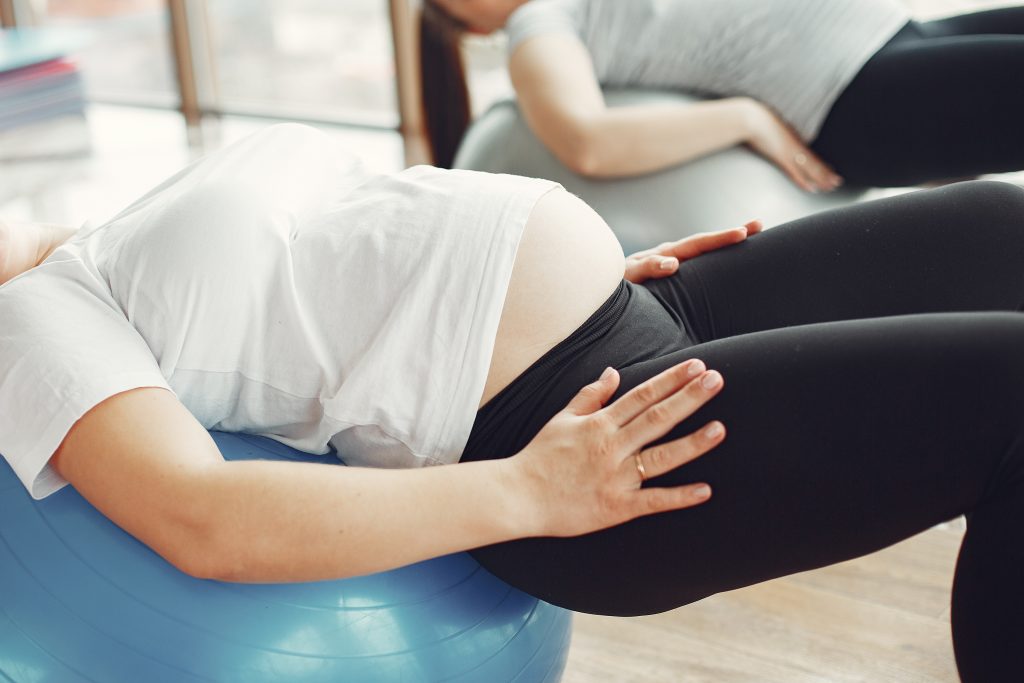Discover how physiotherapy can provide effective relief for back pain during pregnancy.
Can Physiotherapy Help Relieve Back Pain During Pregnancy?
Are you tired of constantly battling back pain during your pregnancy? You’re not alone! Pregnancy-related back pain affects many women, but the good news is that physiotherapy may hold the key to finding relief. In this article, we’ll explore the causes of pregnancy-related back pain, discuss the role of physiotherapy in pain management, delve into the benefits of physiotherapy for pregnant women, and provide tips for finding a qualified physiotherapist. So, grab a comfy pillow and let’s dive in!

Understanding Back Pain During Pregnancy
Back pain during pregnancy is a common complaint that can range from mild discomfort to debilitating agony. Hormonal changes, weight gain, and the shifting of your center of gravity are among the culprits contributing to this discomfort. But fear not, there’s hope on the horizon!
Causes of Pregnancy-Related Back Pain: There’s no shortage of factors that can make your back scream during those nine long months. From ligament laxity to muscle imbalance, your body is going through quite the transformation, and it’s no wonder your back is feeling the strain.
How Pregnancy Changes Your Body: Your body is a magnificent vessel that undergoes remarkable changes during pregnancy. As your baby grows, your uterus expands, placing extra pressure on your spine. Simultaneously, your abdominal muscles stretch and weaken, which can lead to poor posture and lower back pain.
Ligament Laxity: One of the major causes of back pain during pregnancy is ligament laxity. The hormones released during pregnancy cause the ligaments in your pelvic area to become more relaxed and flexible. While this is necessary for the baby’s growth and delivery, it can also lead to instability in your spine and contribute to back pain.
Muscle Imbalance: Pregnancy can also lead to muscle imbalances, especially in the abdominal and back muscles. As your baby grows, the weight distribution in your body changes, and this can cause certain muscles to become overworked while others become weaker. This imbalance can put additional stress on your back and result in pain and discomfort.
Postural Changes: The expanding uterus and the changes in your body’s center of gravity can affect your posture during pregnancy. As your belly grows, your body naturally adjusts to accommodate the extra weight, which can lead to a shift in your posture. This shift can put strain on your back muscles and lead to back pain.
Weight Gain: Pregnancy often comes with weight gain, and the additional pounds can put extra stress on your back. The increased weight can cause your spine to compress and your back muscles to work harder to support your body. This added strain can result in back pain, especially in the lower back area.
Emotional and Psychological Factors: Pregnancy is a time of significant emotional and psychological changes. The stress, anxiety, and hormonal fluctuations can contribute to muscle tension and exacerbate back pain. It’s important to address these factors and find ways to relax and manage stress during pregnancy.
Exercise and Physical Activity: Engaging in regular exercise and physical activity during pregnancy can help alleviate back pain. Strengthening the core muscles, improving flexibility, and maintaining good posture can all contribute to reducing discomfort. However, it’s crucial to consult with your healthcare provider before starting any exercise routine during pregnancy.
Alternative Therapies: In addition to exercise, there are various alternative therapies that can provide relief from back pain during pregnancy. These include prenatal yoga, massage therapy, acupuncture, and chiropractic care. These therapies focus on relaxation, pain management, and improving overall well-being.
Proper Body Mechanics: Practicing proper body mechanics and ergonomics can go a long way in preventing and managing back pain during pregnancy. This includes maintaining good posture, avoiding heavy lifting, using supportive footwear, and using pillows or cushions for proper spinal alignment while sitting or sleeping.
Seeking Professional Help: If your back pain becomes severe or persistent, it’s important to seek professional help. Your healthcare provider can assess your condition, provide appropriate treatment options, and offer guidance on managing back pain during pregnancy.
Remember, you’re not alone in experiencing back pain during pregnancy. With the right knowledge, support, and proactive measures, you can navigate this discomfort and focus on the joyous journey of bringing new life into the world.
The Role of Physiotherapy in Pain Management
Bid farewell to the days of suffering in silence, for physiotherapy is here to save the day! But what exactly is physiotherapy? Well, it’s a branch of healthcare that focuses on restoring movement and function to your body. Through a variety of techniques and exercises, physiotherapy can help alleviate your pregnancy-related back pain.
Physiotherapy Techniques for Pain Relief: Physiotherapists wield an arsenal of techniques to tackle your back pain head-on. From gentle manual therapy to targeted exercises and stretches, they tailor their approach to meet your unique needs. Plus, they empower you with knowledge, teaching you self-management strategies to keep the pain at bay.
One of the techniques commonly used in physiotherapy for pain relief is manual therapy. This hands-on approach involves the physiotherapist using their hands to manipulate and mobilize your joints and soft tissues. By applying gentle pressure and specific movements, they can help reduce pain, improve range of motion, and restore function.
In addition to manual therapy, physiotherapists may also incorporate exercises and stretches into your treatment plan. These exercises are designed to strengthen weak muscles, improve flexibility, and promote proper alignment. By addressing any muscle imbalances or weaknesses, physiotherapy can help alleviate pain and prevent future injuries.
Furthermore, physiotherapists are not only focused on providing immediate pain relief but also on equipping you with the knowledge and tools to manage your pain in the long term. They will educate you about your condition, helping you understand the underlying causes of your pain and teaching you self-management strategies. These strategies may include posture correction, ergonomics, and specific exercises or stretches that you can do at home to maintain your progress.
Another aspect of physiotherapy that sets it apart is its holistic approach to pain management. Physiotherapists consider the whole person, taking into account factors such as lifestyle, stress levels, and mental health. They understand that pain is not just physical but can also be influenced by psychological and emotional factors. By addressing these aspects, physiotherapy aims to provide comprehensive and effective pain management.
So, if you’re experiencing pregnancy-related back pain or any other type of pain, consider giving physiotherapy a try. With its wide range of techniques, personalized approach, and focus on long-term pain management, physiotherapy can be a valuable ally in your journey towards a pain-free life.
Benefits of Physiotherapy for Pregnant Women
Physiotherapy isn’t just another fancy-sounding treatment; it offers real, tangible benefits for pregnant women. So, let’s explore the reasons why you should consider giving it a go!
Improving Posture and Alignment: In the battle against back pain, good posture is your secret weapon. Physiotherapy can help you regain proper alignment and teach you how to maintain it, reducing strain on your back and bringing a sigh of relief.
Strengthening Core muscles: Your core muscles play a crucial role in supporting your spine. With targeted exercises, physiotherapists can help you build a sturdy core, offering you stability and reducing the strain on your back. Hello, strong mama!
Relieving Pelvic Pain: Pregnancy can bring about various discomforts, and pelvic pain is one of them. Physiotherapy techniques, such as pelvic floor exercises and manual therapy, can provide relief by improving the strength and flexibility of your pelvic muscles. This can make a significant difference in your day-to-day activities and overall comfort during pregnancy.
Enhancing Circulation: Pregnancy can sometimes lead to swelling and fluid retention, which can be uncomfortable. Physiotherapy can help enhance circulation through techniques like massage and gentle exercises. By improving blood flow, physiotherapy can reduce swelling and promote overall well-being.
Managing Weight Gain: Weight gain is a natural part of pregnancy, but excessive weight gain can put additional strain on your body. Physiotherapy can assist in managing weight gain by providing guidance on appropriate exercises and lifestyle modifications. By maintaining a healthy weight during pregnancy, you can reduce the risk of complications and improve your overall well-being.
Preventing and Managing Incontinence: Pregnancy and childbirth can sometimes lead to bladder control issues, such as urinary incontinence. Physiotherapy can help prevent and manage incontinence by strengthening the pelvic floor muscles, which play a vital role in bladder control. Through targeted exercises and techniques, physiotherapists can provide you with the tools to regain control and improve your quality of life.
Preparing for Labor and Delivery: Physiotherapy can also help you prepare for labor and delivery. By focusing on exercises that strengthen the pelvic floor and improve overall fitness, physiotherapists can help you build endurance and enhance your ability to cope with the physical demands of childbirth. Additionally, they can provide education on breathing techniques and relaxation exercises that can be beneficial during labor.
Promoting Mental Well-being: Pregnancy can bring about a range of emotions, and it’s essential to prioritize your mental well-being. Physiotherapy can contribute to your overall mental well-being by providing a safe and supportive environment. Through personalized care and guidance, physiotherapists can help alleviate stress, anxiety, and any emotional challenges you may be experiencing during your pregnancy journey.
So, if you’re a pregnant woman looking for ways to enhance your well-being during this transformative time, consider incorporating physiotherapy into your prenatal care. With its numerous benefits, it can support you in maintaining a healthy and comfortable pregnancy, preparing you for the beautiful journey of motherhood.
Safety Considerations for Physiotherapy During Pregnancy
While physiotherapy can do wonders for your back pain, it’s essential to consider safety precautions during your pregnancy journey.
When to Avoid Physiotherapy: Although physiotherapy is generally safe during pregnancy, there are some cases where caution is advised. If you have certain medical conditions, such as vaginal bleeding, placenta previa, or a history of premature labor, it’s best to consult with your healthcare provider first.
Tips for Safe Physiotherapy Sessions: To ensure the safety and effectiveness of your physiotherapy sessions, here are a few handy tips. Firstly, communicate openly with your physiotherapist about your pregnancy and any concerns you may have. Secondly, listen to your body and take breaks as needed. Lastly, stay hydrated and nourished throughout your sessions – after all, you’re nurturing two!

How to Find a Qualified Physiotherapist
Now that you’re convinced physiotherapy is worth a shot, the next step is finding a skilled practitioner who’s a perfect fit for you.
Credentials to Look For: When seeking a qualified physiotherapist, keep an eye out for credentials such as a Bachelor’s or Master’s degree in physiotherapy and membership in professional organizations.
Questions to Ask Your Potential Physiotherapist: Before entrusting your precious back to someone’s care, ask questions to gauge their expertise and ensure your comfort. Inquire about their experience treating pregnant women and their approach to pain management. Remember, a thorough understanding will put your mind at ease!
With all this information at your fingertips, you’re well-equipped to embark on your journey to a pain-free pregnancy. Physiotherapy can help you navigate the ups and downs of back pain while nurturing your body during this momentous time. So, take control, seek relief, and embrace your pregnancy with a spring in your step!



